Here's the career advice nobody wants to hear: your importance isn't up for debate. It's not decided by your effort, your passion, or your job title. It's decided by how much others depend on you. And most people get this backwards.
You think working harder makes you more valuable. You believe your good intentions count. You assume that because you care deeply about your work, others must see your worth. Wrong on all counts.
Your appendix might think it's crucial to your survival. Your heart doesn't need to campaign for recognition – lose it, and everything stops. The difference? Dependence. One is replaceable, the other isn't.
This plays out everywhere. The engineer who writes elegant code while the team struggles with blockers. The executive convinced their vision matters while customers abandon ship. The employee who works late every night but gets laid off first.
The brutal truth: importance flows from dependence, not declaration. Others decide your value based on how much they rely on what you provide – and whether they can get it elsewhere. From individuals in companies to companies in markets, this rule governs everything.
Miss this, and you'll spend years optimizing for applause while the world moves on without you.
We've been sold a beautiful lie: work hard, follow your passion, and the world will recognize your worth. It's comforting. It's empowering. And it's complete nonsense.
Here's what actually happens. You pour your heart into projects nobody needs. You develop expertise in areas the market doesn't value. You work late nights perfecting solutions to problems that don't exist. Then you wonder why promotions pass you by.
The lie runs deeper than effort. We confuse feeling good about ourselves with being genuinely important. These are completely different things. Healthy self-worth is essential for psychological well-being – you should absolutely value yourself as a person. But believing you get to decide your own professional importance? That's where delusion creeps in.
Take that engineer who writes the most elegant code in the company. Beautiful architecture, perfect documentation, zero technical debt. They feel important because they know their craft. But if their elegant system sits unused while the team struggles with deployment issues, their importance crashes to near zero. The system doesn't care about elegance – it cares about what works.
Consider the executive convinced their strategic vision matters. They've studied the market, crafted detailed plans, presented compelling narratives to the board. But if customers keep leaving for competitors, that vision becomes worthless fast. Markets don't validate strategies – they validate results.
The most dangerous version of this lie? "I'm passionate about my work, so it must be valuable." Passion feels meaningful. It drives late nights and weekend thinking. It makes you feel purposeful. But passion without dependency is just an expensive hobby. Your appendix might be passionate about appendix things. Your heart doesn't need passion – it just needs to keep you alive.
This isn't about crushing dreams or attacking self-esteem. It's about understanding the difference between internal satisfaction and external value. You can love your work and still be replaceable. You can feel fulfilled and still be irrelevant to the larger system.
The research backs this up. Studies show that the people who advance are the ones others depend on. Individuals who occupy unique, high-leverage network positions get more promotions and higher pay because they provide value that is hard to replace, while overt self-promotion on its own often backfires.
Stop asking "How do I feel about my contribution?" Start asking "How much would break if I disappeared tomorrow?"
Your heart never campaigns for recognition. It doesn't need to prove its value or send out quarterly impact reports. Lose your heart, and everything stops. That's important.
Your appendix, meanwhile, actually does valuable work – supporting immune function, maintaining gut health, serving as a bacterial reservoir. But here's the thing: its importance is still determined by how much your body depends on those functions, not by the appendix declaring itself crucial. The body decides. Always.
This is how importance works everywhere, at every level. It's determined by dependency, not declaration.

Network science proves this. In any complex system, nodes matter based on what breaks when they're removed. The most connected nodes aren't necessarily the loudest ones – they're the ones whose absence creates the biggest disruption. Remove a peripheral node, and the network barely notices. Remove a critical connector, and everything falls apart.
Here's the brutal truth most people avoid: if you're easily replaceable, you're not important yet. Your good intentions don't change this. Your hard work doesn't override it. Your passion definitely doesn't matter if nobody depends on what you're passionate about.
But this cuts both ways. The quiet engineer who prevents three system failures per month? Critical node. The designer who everyone comes to for feedback because they see blind spots others miss? Essential connector. The project manager who somehow makes impossible deadlines happen? Irreplaceable hub.
Notice none of these people are declaring their importance. They're creating it through dependency.
Even leadership follows this rule. Your authority doesn't come from your title – it comes from how much people above and below you depend on your decisions. Employees depend on you for guidance and resources. Shareholders depend on you for returns. Screw up either direction, and your importance evaporates fast.
The most successful professionals understand this instinctively. They don't focus on self-promotion or internal metrics. They focus on making themselves genuinely indispensable by solving problems others can't solve, connecting dots others can't see, or preventing disasters others don't even know are coming.
Stop measuring your importance by how you feel about your work. Start measuring it by how much would break if you disappeared tomorrow. That's your real value – and it's determined entirely by others.

Organizations are just biological systems wearing business suits. And just like in your body, the people who matter most aren't always the ones making the most noise.
You've seen this before. The brilliant developer who can't ship anything sits in meetings talking about technical debt while the "mediocre" engineer quietly prevents three production disasters per week. Guess who gets promoted when layoffs come? The one the system actually depends on.
Internal markets already prove this works. Platforms like The INFIN show what happens when organizations let collective judgment determine value instead of relying on whoever manages up best. Peers see the real contributions – the late-night saves, the impossible problem-solving, the cultural work that keeps teams functional. Managers see PowerPoint presentations.
Research confirms what these examples show. The people who advance are not necessarily the loudest or the most self-promotional. The most successful professionals make themselves genuinely needed. They become the ones others turn to when things break, when decisions matter, and when the stakes are highest.
But here's what's counterintuitive: the most important people in organizations are often the quiet connectors, not the loud specialists. That project manager everyone goes to for impossible timelines? More valuable than the genius architect whose code nobody can maintain. The designer who sees blind spots across three different teams? More critical than the rockstar who only optimizes their own work.

Leadership follows the same rules, just with dependency flowing in both directions. Your team depends on you for decisions, resources, and air cover. Your board depends on you for results and stewardship. Fail either group, and your importance evaporates – regardless of how visionary your strategy presentations sound.
The traditional org chart lies to you. It shows reporting relationships, not dependency relationships. Real organizational power comes from being irreplaceable, not from being hierarchically positioned. The executive assistant who knows where all the bodies are buried often wields more actual influence than VPs two levels up.
Here's the test: imagine you disappeared tomorrow. Would projects stall? Would teams struggle? Would knowledge vanish? Or would things continue exactly as before, just with one less person in meetings?
Your answer tells you everything about your real importance. And it has nothing to do with your job title or your self-assessment.
Your company thinks it's special. The founders believe their vision matters. The executives assume their strategy creates value. The marketing team insists their brand has power. They're all wrong.
Customers decide your company's importance. Not you, not your board, not your brilliant business plan. Customers – based on how much they depend on what you provide and whether they can get it somewhere else.
Netflix learned this the hard way. They thought they were in the DVD business because that's what made them money. Customers saw them differently – as the company that eliminated trips to Blockbuster.
When streaming became possible, Netflix followed customer dependency, not their own internal identity. They survived while Blockbuster died.
The data proves this works. Customer-centric companies hit twice the revenue growth of less customer-focused organizations. This isn't because they declared themselves valuable – it's because they succeeded in making customers genuinely dependent on their offerings.
But here's where companies get dangerous: they try to engineer dependency instead of earning it. Lock-in contracts, switching costs, proprietary formats that trap users all create artificial dependency. That kind of reliance is parasitic, not valuable, and it collapses the moment a better option appears.
True dependency happens when no better alternative exists. Your customers choose to rely on you because you solve their problems better than anyone else, not because you've made it expensive to leave. Apple doesn't trap users with contracts – they create dependency through an ecosystem so integrated that switching feels like downgrading.

The most successful companies understand this distinction. Amazon doesn't force you to use Prime – they make it so convenient that canceling feels stupid. Tesla doesn't lock you into their charging network – they build it so superior that other options seem primitive.
Here's what's counterintuitive: diversified dependency beats concentrated dependency. The company that depends on one massive customer is fragile, not important. Lose that customer, and you're dead. But the company's thousands of customers depend on it slightly? That's antifragile.
Your company's importance scales with the number of people who depend on you and the degree of that dependence. Not your revenue, not your valuation, not your founder's vision. Dependence.
Stop asking "What do we want to build?" Start asking "What do people depend on us for – and how can we become more indispensable at that?"
Here's what nobody tells you: becoming important isn't about proving your worth. It's about making yourself indispensable to people who matter. Importance is earned when others know things fall apart without you, not when you stack up personal achievements on a list.
Proving worth is about you: your achievements, your skills, your narrative. Creating indispensability is about them: their problems, their dependencies, their success. That shift in focus makes all the difference.
The people who rise the fastest are rarely the ones chasing applause. They are the ones solving headaches no one else can, the ones others quietly rely on day after day.
The right approach starts with a simple question: what would break if you weren’t here? If the answer is "nothing much," then you are not important yet. That’s not a dead end, it is an invitation.
Every system has gaps waiting to be filled, and the professionals who step into those gaps stop being optional and start being essential.
Creating this kind of indispensability takes patience and humility. You will often find yourself doing work that is less glamorous but far more valuable in the long run. Over time, that reliability compounds into real influence.
And remember: they do this through service, not control. Being needed because you are genuinely helpful creates trust. Being needed because you have made yourself a bottleneck breeds resentment and fragility.
True importance comes from net value creation, the kind aimed at making the whole system work better. Importance built on manipulation, bottlenecks, or traps may feel powerful for a moment, but it breeds resentment and fragility.
When others only depend on you because you block alternatives, they will spend just as much energy trying to replace you as they do relying on you.
Sustainable importance comes from solving real problems others cannot solve. It comes from being the engineer who prevents disasters before they happen, the manager who makes impossible projects possible, the analyst who sees patterns everyone else misses.
Those people never need to declare their value, because their absence speaks louder than their words ever could.
Stop asking "How do I add value?" Start asking "What do people depend on me for, and how can I become even more essential at that?" That shift changes your entire career trajectory.